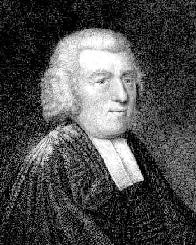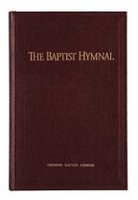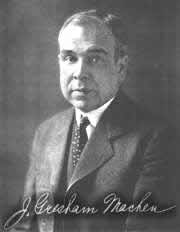Psalm 93:5b - The Application of God’s Word.
In 5b we find the application of God’s Word. “Holiness befits Your house, O Lord, forevermore.” Spurgeon said, “No hangings, no tapestry become God’s house so well as holiness…” God is holy, and so his house must be holy. This idea of holiness is, in the truest sense of the word, is awesome. Holy is what God is. In Psalm 5:4-7 God’s holiness is described.
Psalm 5:4-7 (NASB95):
For You are not a God who takes pleasure in
wickedness; No evil dwells with You. The boastful shall not stand before Your
eyes; You hate all who do iniquity. You destroy those who speak falsehood; The
Lord abhors the man of bloodshed and deceit. But as for me, by Your abundant
lovingkindness I will enter Your house, At Your holy temple I will bow in
reverence for You.
God is holy because He does not take pleasure in wickedness, no evil dwells within Him, He is not fooled by the boastful, He hates all who do iniquity, he destroys liars, He abhors the man of violence and lies, and He is lovingly kind. This is what makes him holy. This is why His house, including those of His household, must be holy. God cannot tolerate unholiness. This is what God communicated through Moses in Leviticus 19:2.
Leviticus 19:2 (NASB95):
“Speak to all the congregation
of the sons of Israel and say to them, ‘You shall be holy, for I the Lord your
God am holy.
Holiness is the highest aim that we can attain to, because God is holy. The problem is that we are not holy. The apostle Paul made is quite clear, in Romans 3:9-12, that no one is holy.
Romans 3:9-12 (NASB95):
What then? Are we better than they? Not at all; for
we have already charged that both Jews and Greeks are all under sin; as it is
written,
“There is none righteous, not even one;
There is none who
understands,
There is none who seeks for God;
All have turned aside,
together they have become useless;
There is none who does good,
There is
not even one.”
This is bad news for us. The Psalmist makes it clear that it is “holiness that befits” the house of the Lord, and we are not holy. We cannot be allowed in the door. But in His exceeding lovingkindness God had a plan. In 2 Corinthians 5:21 we see exactly what that plan is.
2 Corinthians 5:19-21 (NASB95):
…God was in Christ
reconciling the world to Himself, not counting their trespasses against them,
and He has committed to us the word of reconciliation. Therefore, we are
ambassadors for Christ, as though God were making an appeal through us; we beg
you on behalf of Christ, be reconciled to God. He made Him who knew no sin to be
sin on our behalf, so that we might become the righteousness of God in Him.
God has reconciled to Himself a people, and He has done it through Christ. He made Christ the bearer of our sin, and He made us the recipients of Christ righteousness. All this was done that “we might be holy as He is holy.” What a wonderful gift that God has made available to us. Not only has God made it possible, through Christ for us to enter into His house, but He has also made us ambassadors for Christ here on this earth. The apostle Paul, teaching this same point, uses slightly different language in Galatians 4:4-6.
Galatians 4:4-6 (NASB95):
But when the fullness of the time came, God sent
forth His Son, born of a woman, born under the Law, so that He might redeem
those who were under the Law, that we might receive the adoption as sons.
Because you are sons, God has sent forth the Spirit of His Son into our hearts,
crying, “Abba! Father!”
Through Christ we can be adopted into the family of God, and be made holy. If we will just repent and believe we will be saved (Mark 1:5). Remember, they only way that we can do this is through the rebirth of the Spirit by the imperishable seed of the Word of God (1 Peter 1:23; John 3:3, 5-8).
It is the confirmed testimonies of the King that make us holy, and consequently a part of His household. The Word of God is sufficient to save us, and effective in making us holy. God’s word, through the ministry of the Holy Spirit, renews our mind so that we will not be conformed to the image of the world but rather be transformed into holy image of Christ. This is how powerful the word of God is, and it will be this powerful “forevermore.” Spurgeon illustrated this point well when he said, “Truth changed not its doctrines, which are sure, nor holiness its precepts, which are incorruptible.”
Conclusion:
There is but one fitting response the knowledge of the living and true God, submission. Submit to God, Believe in Christ, and be saved by the King of the Universe. When you do this the words of the apostle Paul in Romans 8:37-39 can be yours:
But in all these things we overwhelmingly conquer through
Him who loved us. For
I am convinced that neither death, nor life, nor
angels, nor principalities, nor
things present, nor things to come, nor
powers, nor height, nor depth, nor any
other created thing, will be able to
separate us from the love of God, which is
in Christ Jesus our Lord.

































